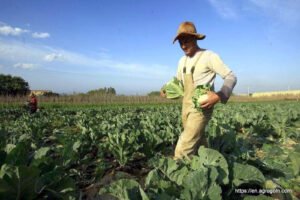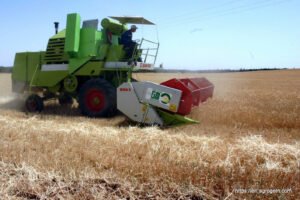Agricultural Education in Brunei: Nurturing a Sustainable Future. Agriculture has always been a vital component of Brunei’s economy and culture. As a small and resource-rich country located on the northern coast of Borneo, agriculture plays a significant role in providing food security, rural livelihoods, and preserving traditional practices. To support the sustainable development of its agricultural sector, Brunei has invested in agricultural education. This article explores the state of agricultural education in Brunei, its historical context, current initiatives, and its role in shaping a sustainable agricultural future for the nation.
Agricultural Education in Brunei: Nurturing a Sustainable Future
Historical Context of Agricultural Education in Brunei
Brunei’s agricultural practices have deep historical roots, dating back to pre-colonial times when traditional farming methods sustained local communities. During the colonial era, agricultural practices underwent changes as European powers introduced new crops and farming techniques. However, the focus on agriculture remained primarily subsistence-oriented.
In the post-independence period, Brunei faced increasing pressure to modernize its agricultural sector to keep up with the demands of a growing population and urbanization. Recognizing the importance of knowledge and skills in driving agricultural advancements, the government started investing in agricultural education and research.

Current Landscape of Agricultural Education
- Universiti Brunei Darussalam (UBD): The main institution offering agricultural education in Brunei is UBD. UBD’s Faculty of Science offers various undergraduate and postgraduate programs in environmental science, including courses in sustainable agriculture, agroforestry, and land management.
- Institute of Brunei Technical Education (IBTE): IBTE is another key player in agricultural education. It offers vocational and technical courses in areas like agriculture and agronomy, providing practical training to equip students with hands-on skills.
- Agricultural Research and Extension Division (ARED): ARED, under the Ministry of Primary Resources and Tourism, plays a crucial role in advancing agricultural education and research. It collaborates with UBD and IBTE to promote sustainable agricultural practices and disseminate knowledge to farmers.
- Industry-Driven Partnerships: The government of Brunei actively engages with private sector stakeholders, agricultural cooperatives, and international organizations to develop industry-driven training programs. These partnerships help align agricultural education with market demands and ensure graduates are equipped with relevant skills.

Challenges in Agricultural Education
While agricultural education in Brunei has made significant strides, it faces certain challenges that need to be addressed to ensure its effectiveness in promoting sustainable agriculture:
- Perception and Attractiveness: Agriculture is often perceived as a less glamorous or attractive career choice compared to other fields. Raising awareness about the importance of agriculture and showcasing the diverse career opportunities it offers can help change this perception.
- Research Funding: To drive innovation and sustainable practices in agriculture, adequate funding for research and development is crucial. Increased investment in agricultural research can lead to breakthroughs in crop improvement, resource management, and sustainability.
- Technology Adoption: Embracing modern technology is essential for enhancing agricultural productivity and efficiency. Promoting the use of advanced agricultural machinery, precision farming techniques, and digital tools can benefit farmers and create a tech-savvy agricultural workforce.
- Climate Change Resilience: With climate change posing significant challenges to agriculture, educating farmers on climate-resilient practices and sustainable resource management is essential. Agricultural education must focus on adaptive practices to ensure long-term food security.
Advancing Sustainable Agriculture
Agricultural education in Brunei must evolve to meet the demands of the future and foster sustainable practices. This can be achieved through various initiatives:
- Interdisciplinary Approach: An interdisciplinary approach that combines agricultural sciences, environmental studies, economics, and social sciences can provide a holistic understanding of agricultural systems. This integrated knowledge can better address the complex challenges faced by the sector.
- Experiential Learning: Practical, hands-on experiences are invaluable in agricultural education. Internships, field visits, and farm-based training can offer students real-world exposure and equip them with essential skills.
- Promotion of Entrepreneurship: Encouraging entrepreneurship within the agricultural sector can create opportunities for young graduates. Agricultural education should include business and marketing aspects to enable graduates to become agricultural innovators and entrepreneurs.
- Research and Innovation: Collaborative research between academic institutions, private sector players, and government agencies can drive innovation in agriculture. Supporting research projects that address local challenges, such as crop diversification and water management, can lead to sustainable solutions.
- Community Engagement: Engaging local communities, especially smallholder farmers, in agricultural education initiatives can foster knowledge exchange and help implement sustainable practices at the grassroots level.

Conclusion
Agricultural education in Brunei plays a critical role in shaping the future of the nation’s agricultural sector. It equips students with the knowledge, skills, and mindset needed to address the challenges of sustainable food production, resource management, and climate change resilience. To nurture a sustainable future, Brunei must continue to invest in agricultural education, promote interdisciplinary approaches, encourage research and innovation, and foster strong partnerships between academia, industry, and communities. By doing so, Brunei can ensure the resilience and prosperity of its agricultural sector and contribute to food security and environmental sustainability on a global scale.
